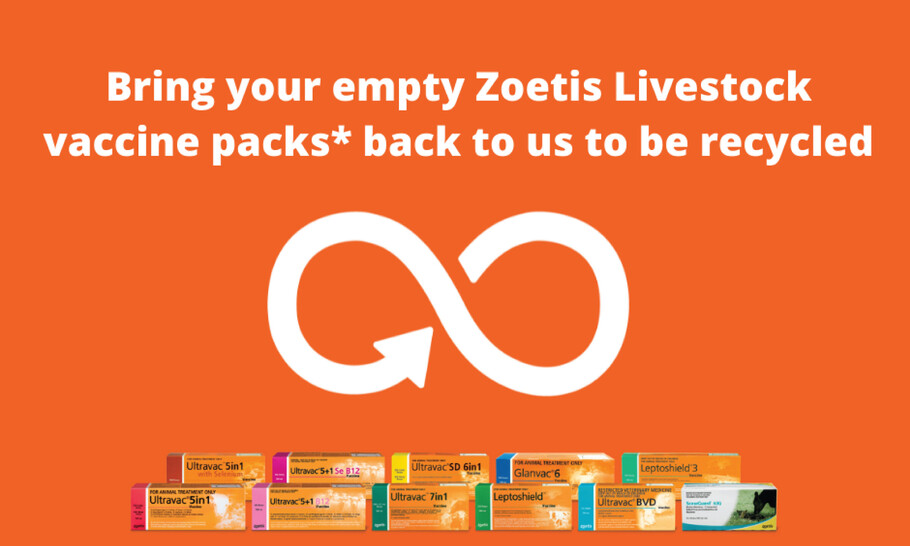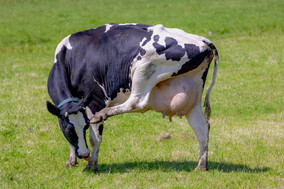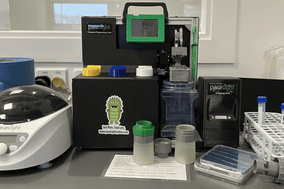Zoetis Recycling Programme VetSouth
VetSouth are proud to be part of the Zoetis Recycling Programme, providing recycling options for our farmers in Gore, Tapanui and Winton. Farmers can return Zoetis livestock vaccine packs, and Teatseal tubes and buckets, to your local VetSouth clinic. Plasback will then collect the waste and and recycle it into FuturePost Fence posts, or reusable plant trays.
What products can be recycled?
The following Zoetis packs can be recycled:

Teatseal tubes and buckets are also recyclable. Teatwipes are home compostable and marine biodegradable.
Where and when can I drop off my vaccine packaging?
You can drop off your Zoetis packs at our Gore, Tapanui or Winton clinic during opening hours. Find your nearest clinic here.
What about the stoppers or string on the vaccine pack– do these need to be removed?
Yes, stoppers and any string on the vaccine pack will need to be removed. The product must be clean and free from mud/blood.
Does this cost anything?
No, this is fully funded by Zoetis.
What happens to the recycled plastic?
Empty plastic packaging will be collected by Plasback, an accredited product stewardship scheme provider. Plastic packaging will be recycled into new FuturePost fenceposts, or reusable plant trays.













